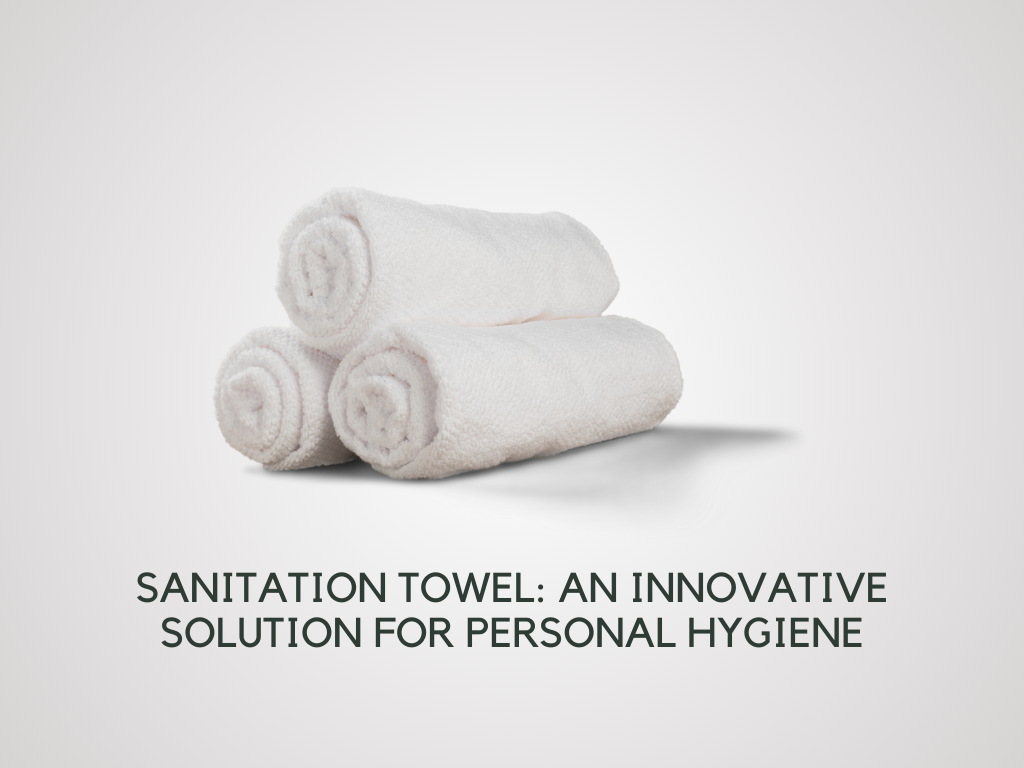Introduction
Maintaining proper personal hygiene is crucial for our overall well-being, and one essential aspect of hygiene is feminine care. In recent years, there has been a significant shift towards environmentally friendly and sustainable alternatives for personal hygiene products. One such innovative solution is the sanitation towel. In this article, we will explore what a sanitation towel is, its benefits, and why it is gaining popularity among individuals seeking sustainable and comfortable options for feminine hygiene.
What is a Sanitation Towel?
A sanitation towel, a reusable menstrual cloth or cloth pad, is a washable and reusable alternative to disposable sanitary napkins or tampons. It is made of soft, absorbent fabric materials such as cotton or bamboo and comes in various sizes, shapes, and designs. Sanitation towels are designed to be worn against the body, offering comfortable protection during menstruation.
Benefits of Sanitation Towels
A sanitation towel, a reusable menstrual cloth or cloth pad, is a washable and reusable alternative to disposable sanitary napkins or tampons. It is made of soft, absorbent fabric materials such as cotton or bamboo and comes in various sizes, shapes, and designs. Sanitation towels are designed to be worn against the body, offering comfortable protection during menstruation.
- Environmental Friendliness: One of the primary advantages of sanitation towels is their positive environmental impact. Disposable sanitary products contribute to significant waste, as they end up in landfills and take years to decompose. Individuals can significantly reduce their environmental footprint and promote sustainability by switching to reusable sanitation towels.
- Cost-effective: The upfront cost of purchasing sanitation towels may be higher than buying disposable products, but the long-term savings are substantial. As sanitation towels are reusable and durable, they can last several years with proper care. By investing in a few high-quality sanitation towels, individuals can save money in the long run by eliminating the need for frequent purchases of disposable pads.
- Comfort and Breathability: Sanitation towels are designed with comfort in mind. The soft fabric used in their construction is gentle on the skin, reducing the risk of irritation or discomfort. Unlike some disposable products that contain chemicals or synthetic materials, sanitation towels provide better breathability, which can help prevent bacterial growth and odor.
- Chemical-free and Hypoallergenic: Many disposable sanitary products contain chemicals, fragrances, and dyes that may cause allergic reactions or skin irritation for some individuals. Sanitation towels, on the other hand, are typically made from natural, hypoallergenic fabrics, reducing the risk of adverse reactions. This makes them a safer option for individuals with sensitive skin or allergies.
- Customizable and Stylish: Sanitation towels come in a wide range of sizes, shapes, and designs, allowing individuals to choose the ones that suit their preferences and needs. Some brands even offer customizable options, allowing users to adjust the absorbency levels according to their menstrual flow. Additionally, the availability of various patterns and colors makes using sanitation towels a more personalized and enjoyable experience.
Conclusion
As society becomes increasingly aware of the environmental impact of disposable sanitary products, there has been a growing interest in sustainable alternatives such as sanitation towels. These reusable cloth pads offer a range of benefits, including environmental friendliness, cost-effectiveness, comfort, and customization. Individuals can prioritize their hygiene by switching to sanitation towels while contributing to a cleaner and more sustainable future.
While sanitation towels may not be suitable for everyone, they provide an excellent option for those looking to reduce waste and embrace eco-friendly alternatives. As more individuals recognize the advantages of sanitation towels, their popularity continues to rise, fostering a positive change in how we approach feminine hygiene.



